
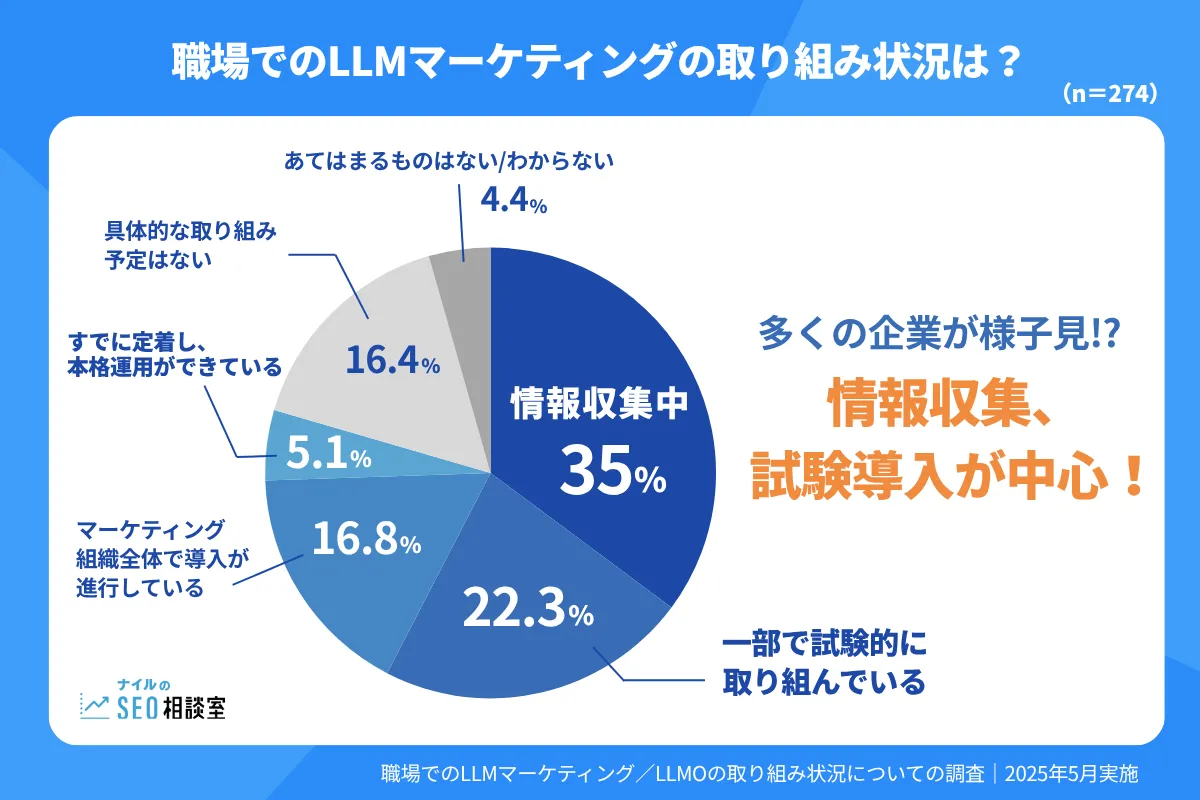
The Current State of LLM Marketing: Understanding Adoption and Challenges in 2025
The Current State of LLM Marketing: Understanding Adoption and Challenges in 2025
In May 2025, Nile Co., a Tokyo-based company specializing in digital marketing, conducted a survey targeting 274 digital marketing professionals across Japan. This survey aimed to analyze the current adoption status, strategies under consideration, impact on websites, and challenges faced by businesses regarding LLM (Large Language Model) marketing.
Survey Overview
The survey, conducted between May 26 and May 30, 2025, utilized internet research methods through Fastask. Participants included men and women aged 10 to 60 from all over the country. The results shed light on the present state of LLM marketing, highlighting that many businesses are still in the information-gathering and trial stages of implementation.
LLM Marketing at the Stage of Information Collection and Trials
The survey revealed that over half of the respondents reported being in a cautious phase with LLM marketing. Specifically, 35% of businesses indicated they were still "collecting information," while 22.3% were engaging in "limited trial implementations." This suggests that companies are carefully considering specific usage methods, internal resources, and associated risks before fully committing to LLM technology.
Conversely, only 5.1% of respondents stated they had fully integrated LLM marketing into their operations, indicating that this technology is still in its nascent stage. However, those companies that began utilizing LLMs have made progress in developing internal knowledge and establishing business processes.
As more successful case studies emerge, it's anticipated that the barriers to adoption will diminish, catalyzing similar initiatives across various companies.
Not Just Operational Efficiency: Strengthening Competitive Edge with LLM Marketing
When asked about the strategies they wish to implement, 54.2% of respondents highlighted "automated content generation" as a priority, followed by 34.0% focusing on "marketing analytics" and 17.2% on "streamlining marketing operations." These responses indicate that many companies are looking at LLM marketing primarily as a means to enhance operational efficiency.
However, there's also a significant interest in strategies designed to boost competitive advantage, like improving customer experience through chatbots, which garnered 42.7% of responses, and LLMO strategies (aiming for citations via ChatGPT and AI overviews) at 33.2%. This dual focus on efficiency and competitiveness suggests that businesses aim to enhance customer touchpoints and explore new influx pathways using generative AI, positioning themselves for differentiation in the market.
Generative AI and Changes in User Engagement
Respondents reflected various experiences regarding the influence of generative AI searches. While 24.0% noted increased visitor numbers and conversion rates, 26.3% reported a rise in traffic without a corresponding increase in conversions, and 17.6% experienced the opposite scenario.
This data implies that generative AI searches may lead to a higher influx of users who are in the information gathering phase. Meanwhile, it also indicates that those with a strong intent to purchase are more likely to visit the websites, thus triggering conversions. The distinction highlights a potential bifurcation in user intent as driven by AI's direct provision of information. However, 13.4% of businesses reported no significant changes, indicating that the impact of generative AI searches varies based on individual business models and product characteristics.
LLMO: A Work in Progress Towards Optimization
Regarding LLMO (Large Language Model Optimization), almost half (48.5%) of respondents indicated they were still "gathering information." This reinforces the idea that many businesses are cautiously exploring this space. With AI-driven search result generation advancing rapidly, numerous companies are contemplating effective strategies to respond to these changes.
On the flip side, 19.8% reported they were experimenting with countermeasures, and 9.2% had set KPIs for their initiatives. This shows that while the adoption remains low, some firms are actively gathering knowledge and moving ahead with practical measures.
Despite this, many companies acknowledge that they have yet to solidify their optimal strategies for LLMO, heightening the sense of uncertainty in this evolving landscape. As AI search impacts become more pronounced, a transition to a more practical phase may begin to unfold across more businesses.
Addressing Knowledge Gaps and Resources
When discussing the significant challenges impeding the advancement of LLM marketing and LLMO, 32.1% of respondents highlighted "insufficient know-how/skills" as their greatest obstacle. While there is considerable interest in the technology, many businesses are struggling to translate that interest into actionable strategies. Following closely were mentions of "insufficient internal resources" and "budget concerns," both at 16%, indicating that limited manpower and financial restrictions hinder the initiation of new practices for multiple companies.
As LLM-related ventures are relatively new, finding individuals with the requisite expertise is still challenging, which compounds the difficulty of keeping abreast of industry developments while managing regular operations. There were also notable concerns about "performance measurement" (13.0%) and "privacy, legal, and governance risks" (11.1%), which further complicate the path to implementation and operation.
Overall, the primary barriers to entry seem to stem more from preparation challenges like "not knowing how to start" or "inability to establish internal structures" rather than technical hurdles. This indicates a predominant phase where businesses are still equipping themselves for what lies ahead.
Moving Towards Industry Leadership with Efficient Consulting Support
The findings indicate that a majority of companies engaging with LLM marketing and LLMO are in the exploration phase and are still determining how to proceed effectively. Yet, with technological maturity and a growing repository of success stories, a significant shift towards widespread adoption is imminent. In the future, the differentiation between businesses will hinge on how they navigate the expectations of technologies while overcoming practical challenges.
Nile is committed to supporting clients with LLM marketing assistance, particularly through our comprehensive LLMO consulting services. By staying updated on the latest advancements in generative AI and proactively proposing tailored strategies, we can address all queries with diligence and expertise.
For those interested in devising concrete strategies for LLMO or wishing to commence efforts promptly, we invite you to reach out for consultation. More information can be found within our LLMO consulting service.
About Nile Co., Ltd.
Nile Co., based in Shinagawa, Tokyo, was established on January 15, 2007, and specializes in digital marketing and DX initiatives. With a wide array of services including SEO consulting and content marketing, we have supported over 2,000 businesses in transforming their online presence. For inquiries or more detailed information about our services and case studies, we encourage you to contact us or visit our website.
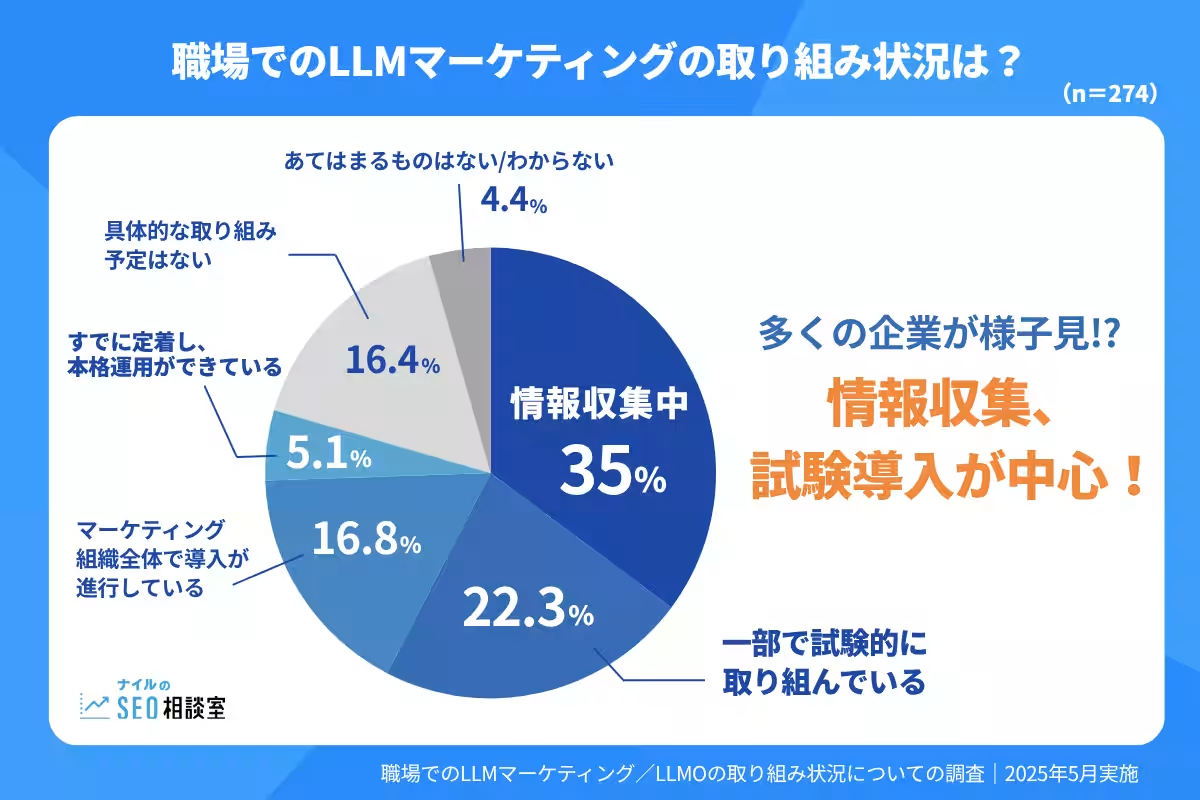
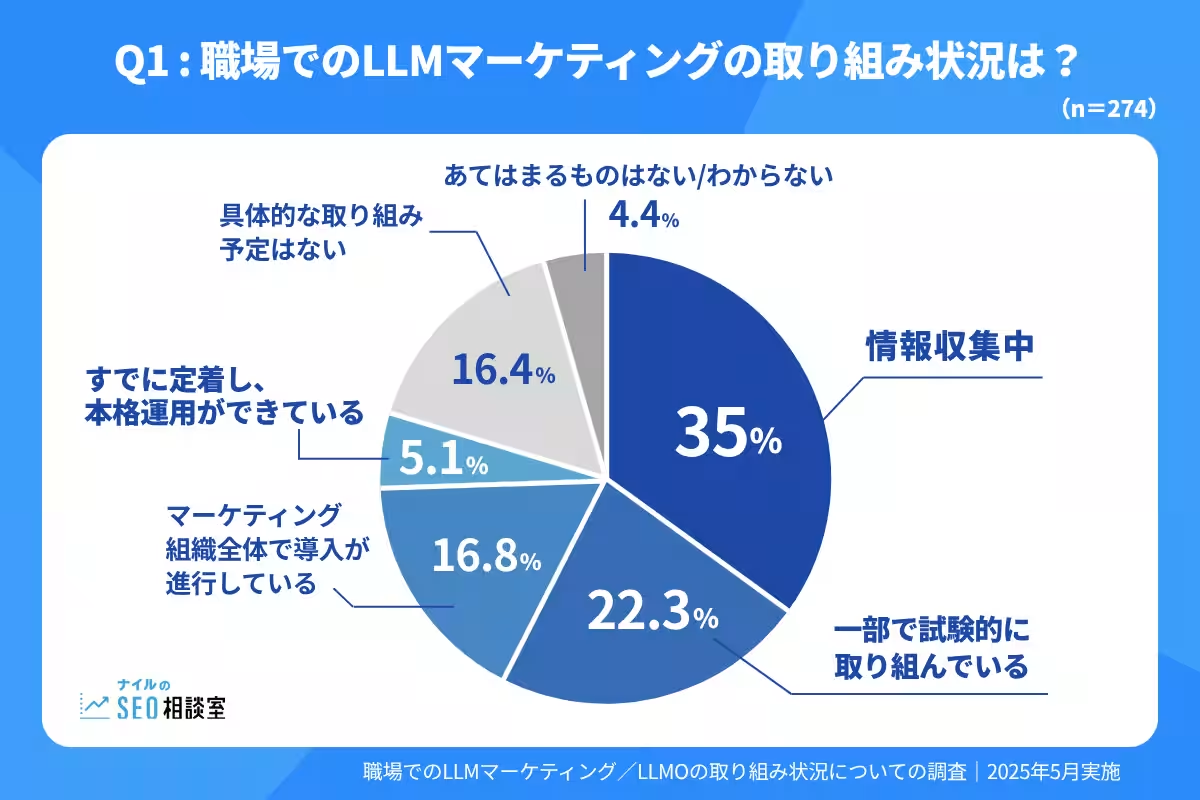
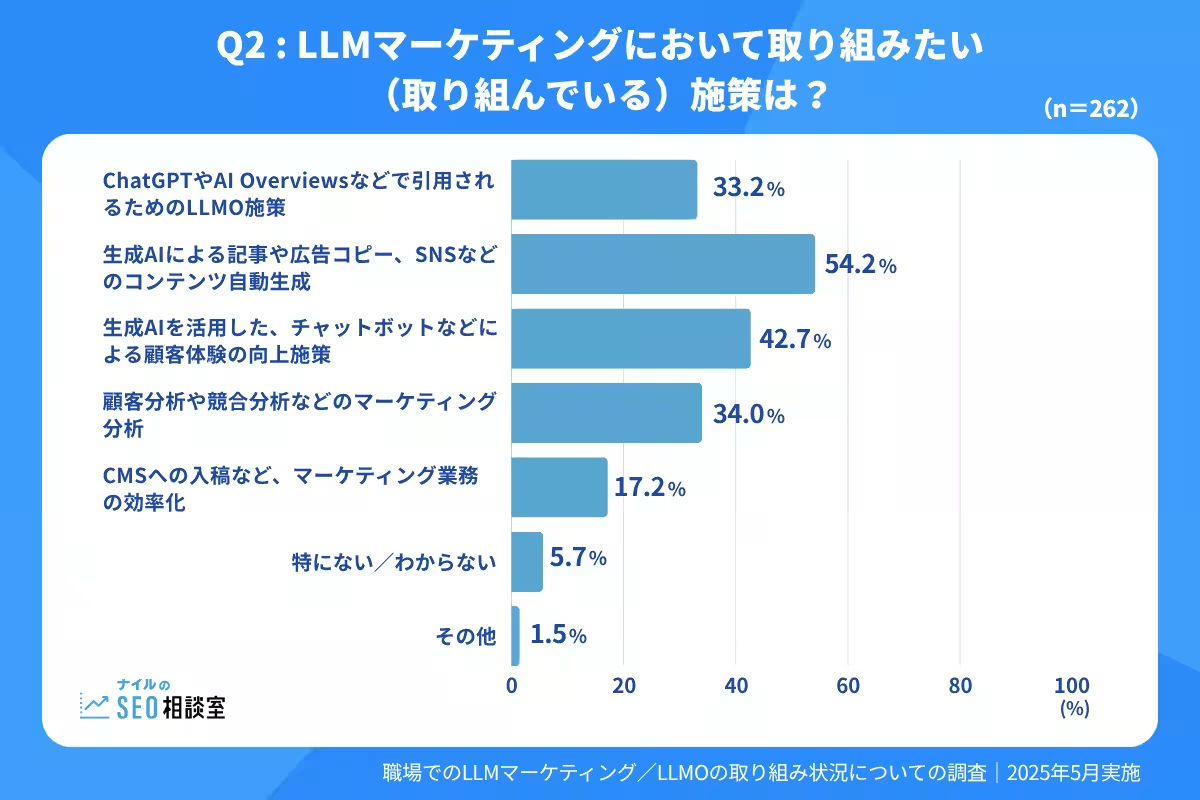
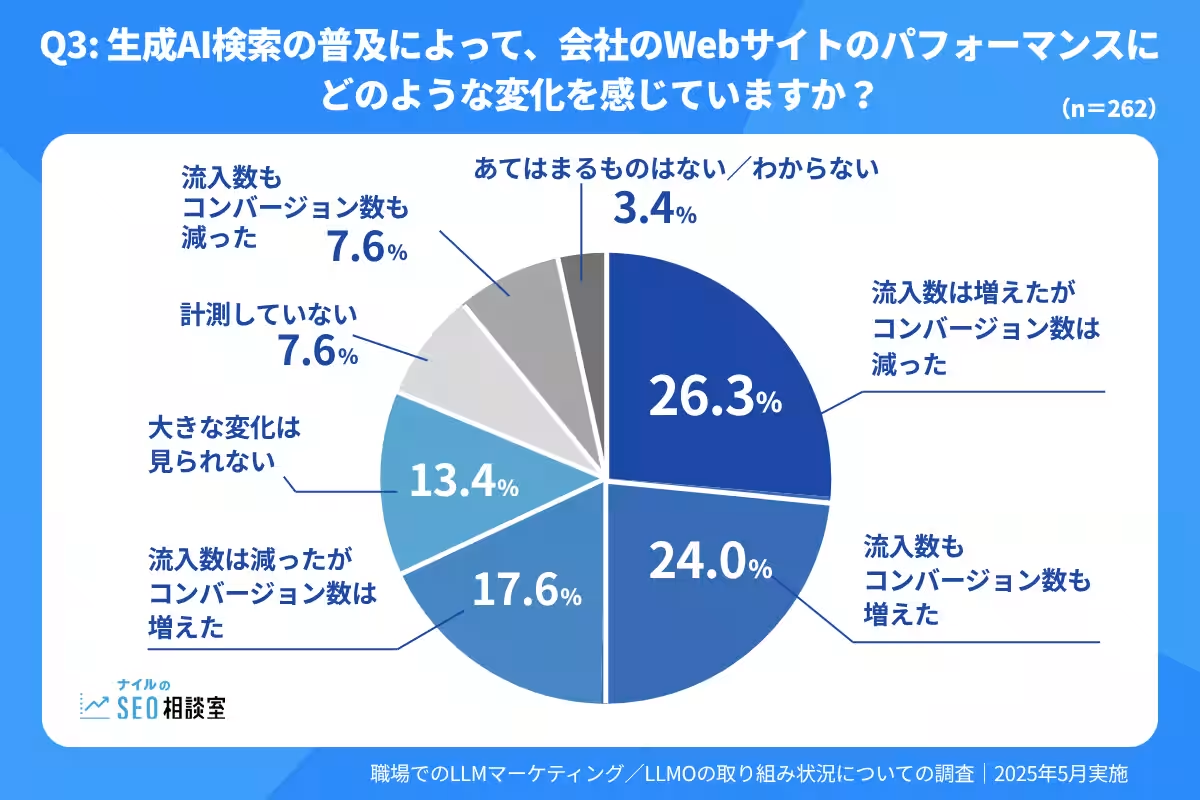
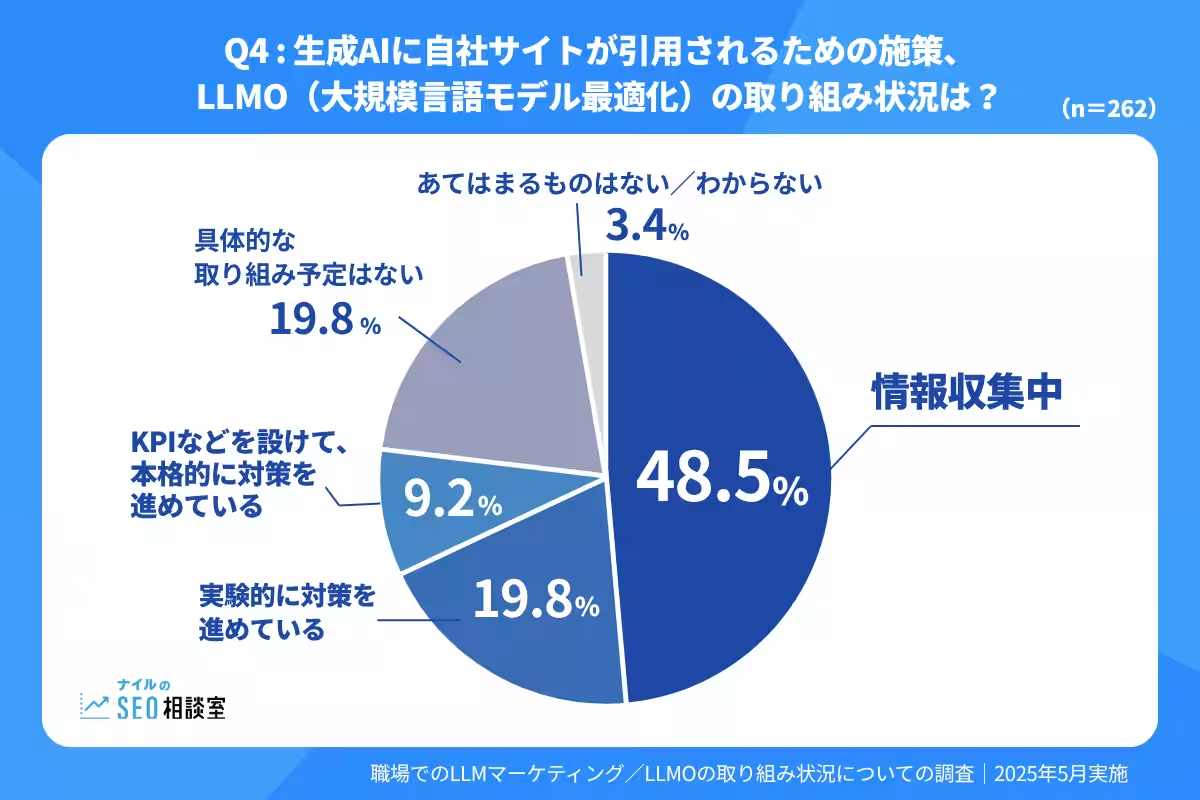
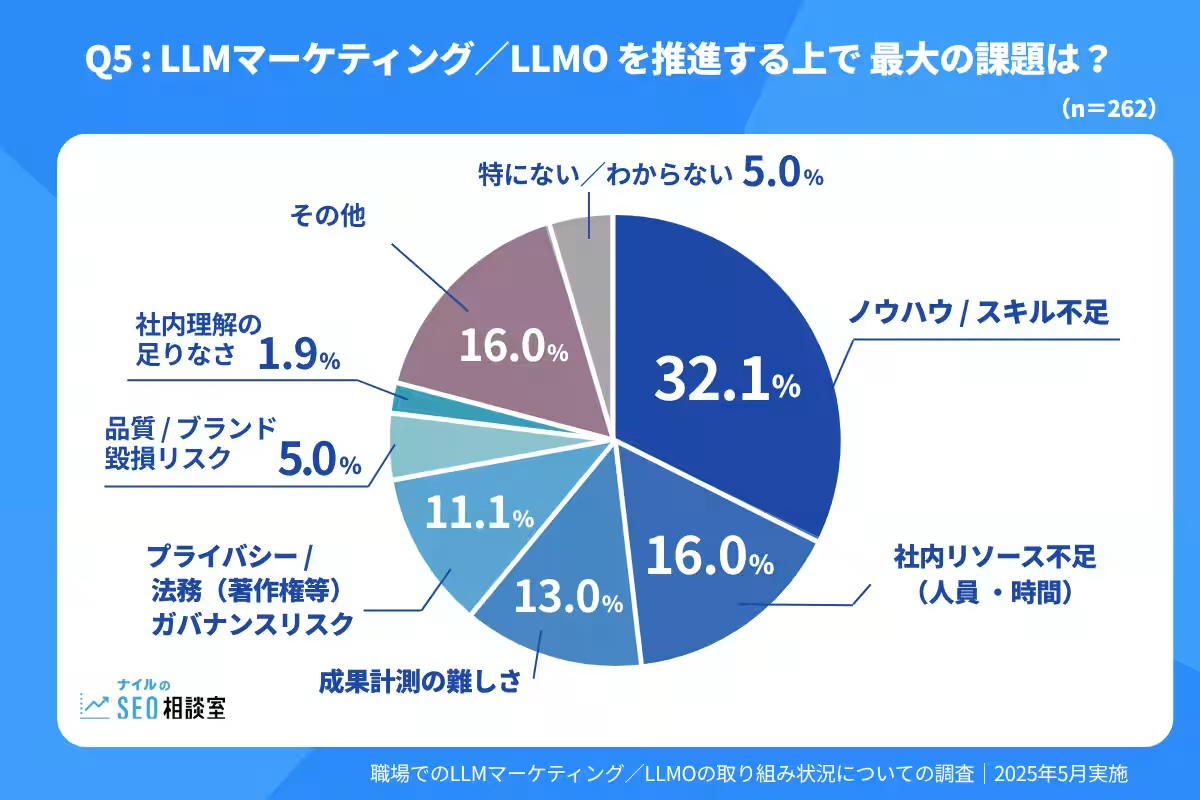
Topics Business Technology)










【About Using Articles】
You can freely use the title and article content by linking to the page where the article is posted.
※ Images cannot be used.
【About Links】
Links are free to use.